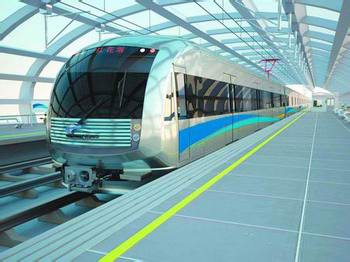 Beijing Subway is about to bid farewell to the "2 yuan era," reflecting the hidden dangers behind public services. Relying on local finances to subsidize public services is doomed to be unsustainable, and subway price hikes may be just the beginning. The prices of water, electricity, and natural gas are expected to rise.
Beijing Subway is about to bid farewell to the "2 yuan era," reflecting the hidden dangers behind public services. Relying on local finances to subsidize public services is doomed to be unsustainable, and subway price hikes may be just the beginning. The prices of water, electricity, and natural gas are expected to rise. Beijing Subway price adjustment exposes hidden public services
In a notice recently announced by Beijing Municipality, it is proposed that a fare differentiation scheme for peak hours will be formulated and introduced at the right time, which means that the “two-year era†of the Beijing Subway will end. When the news came out, public opinion was awe-inspiring. On the surface, this is a metro fare issue that actually reflects the hidden dangers behind public services.
Most of the current public services are provided by monopolistic industries. The government, through financial subsidies, reduces the fees charged by companies to the society and compensates for the "policy losses" of related companies. This practice is concentrated in tapping water, gas, electricity, telecommunications, transportation, and other cities to develop basic industries.
It is undeniable that financial subsidies are necessary for some non-profit-making industries. However, to a certain extent, the operating mechanism of financial subsidies is still not open and opaque, and administrative power occupies an absolute dominant position, resulting in operational inefficiencies and the potential for corruption and other malpractices.
In recent years, some public service companies have been fluctuating in terms of prices to the market and internationally, and in terms of operational mechanisms, system construction, and service quality, they often use the so-called “national conditions†as a pretext to reject or delay “convergenceâ€, resulting in widespread public Public service prices are offensive.
Reliance on local finances to subsidize public services is difficult to sustain
The data shows that Beijing has a huge amount of financial subsidies every year to invest in buses and subways. From 2008 to 2012, Beijing’s subsidy for ground transportation and rail transit has been increasing year by year, accounting for an average of 5.5% of government revenue, which is much higher than 1.3% in Guangzhou and 2.1% in Shanghai.
Beijing’s high subsidies for subway buses will inevitably squeeze other people’s livelihood expenditures. Take 2012 as an example, Beijing's public transportation subsidies accounted for 11% of fiscal expenditure, while social security and employment expenditures accounted for only 7.6% of fiscal expenditure. This kind of subsidy policy is a kind of “universal inclusiveness†policy. Compared with “targeted†subsidies, this subsidy policy is not the wisest option, and it is not conducive to the sustainable development of public transport.
In the United Kingdom after the Second World War, public services such as housing, transportation, education, medical care, and unemployment assistance related to the national economy and people’s livelihood were mostly provided by the government at a low price, and monopoly industries such as energy, electricity, postal services, and railways were basically government control. Afterwards, as social welfare expenditures have widened, the gap between the government’s fiscal revenue and fiscal expenditure began to widen. At the same time, the malpractices such as the bureaucratic style and low efficiency of running the government to provide public services have gradually emerged.
In the future, Beijing’s fiscal expenditure will continue to tilt toward the people’s livelihood sector. The funds that the government can regulate and control are very limited. Under such circumstances as air pollution and aging are increasingly serious, this model of subsidizing public services based on high fiscal expenditures is difficult to sustain.
Subway prices are just the beginning?
The "Decision" of the Third Plenary Session put forward to improve the government's provision of public services. We will promote price reforms in water, oil, natural gas, electricity, transportation, and telecommunications.
In fact, the reform of water and electricity prices has started. Since this year, the National Development and Reform Commission and other departments have already allocated hydropower resources according to their uses and users. The reform of natural gas prices is also in progress, and a dynamic adjustment mechanism linking natural gas prices to alternative energy prices has been established.
According to the “Government Pricing Catalog†published on the website of the Beijing Municipal Development and Reform Commission, the price of natural necessities such as natural gas and tap water produced and sold in Beijing is determined by the Beijing Municipal Development and Reform Commission. Although the price of electricity is priced by the National Development and Reform Commission, due to previous price distortions, the future upward trend can be expected.
In 2009, Beijing’s fiscal revenue ended at a high growth rate of over 20% for 14 consecutive years, only a 10% increase, while fiscal expenditures did not decrease significantly. In that year, Beijing raised the price of water and electricity, and the natural gas price reform program also surfaced, setting off a wave of price increases.
Under the increasing financial pressure, the price increase of the subway may be only the first step. In the future, the adjustment of the prices of water, electricity, natural gas and other resources may also be followed up.
The increase in prices in the Beijing subway is just the beginning. Currently, the price adjustments for water, electricity and natural gas resources have opened up, and the price increase may not be far behind.
Children Beds,Epp Baby Bed,kindergarten,kindergartens,kindergarten
Jiangsu Laiao Material Technology Co., Ltd. , https://www.laiaomaterial.com